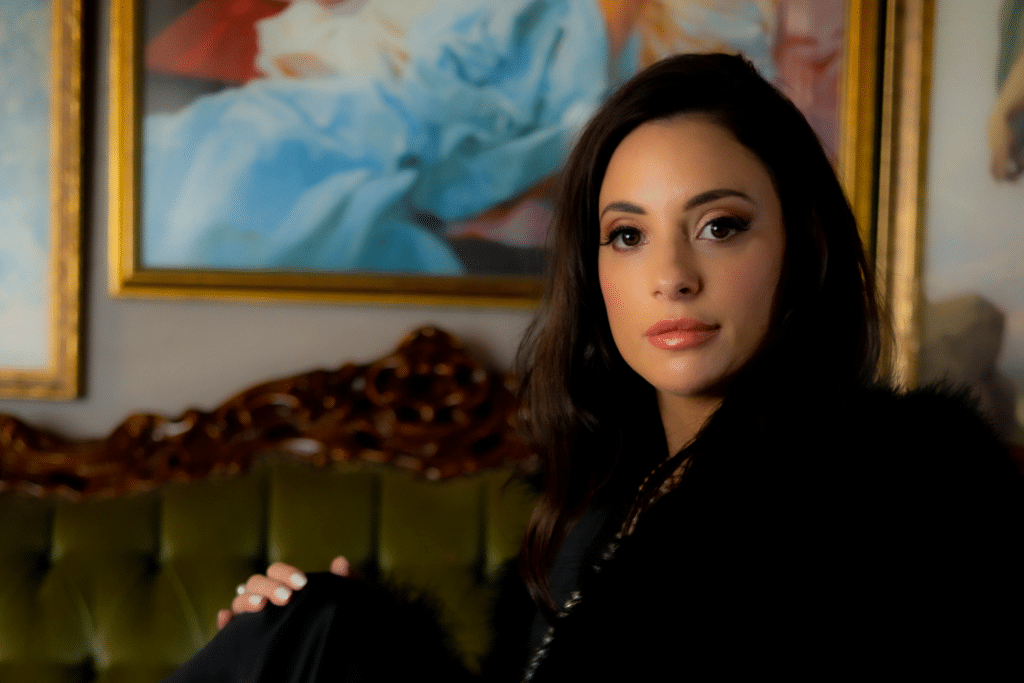Vomiting. Excruciating abdominal pain. And occasionally, death. These are some of the lesser-known symptoms of Crohn’s Disease.
More than 100,000 Australians, including myself, live with Crohn’s Disease or Ulcerative Colitis, facing an unseen struggle that impacts not just our social and work lives, but also our personal relationships. For women in particular, it can have a devastating impact on our self esteem, body image and sex drive.
Crohn’s Disease is an autoinflammatory condition and, while treatment can result in remission, there is currently no cure. I have symptoms of chronic fatigue, unpredictable bowel movements and stomach pain that can be unbearable. I was diagnosed with Crohn’s Disease at the tender age of thirteen, just as I was stepping into adolescence and womanhood, I was also stepping in and out of a hospital bed.
I not only had to learn how to navigate puberty and friendships, but I had to learn to fight to keep my body alive, too. It was a rough start, missing out on the important milestones most girls experienced. While my peers were exploring friendships, dating, and intimacy for the first time, my teenage years revolved around being poked and prodded, surgery and endless medical examinations. Looking back, these experiences affected my self-esteem, body image, and sexual inhibitions that went on to create challenges in my personal relationships. Imagine having to navigate intimacy for the first time with a colostomy bag – it was far from easy.
Navigating the world of dating is nerve-wracking for most people, but when you have an invisible and often debilitating illness, things can get really tricky. Bringing up health struggles becomes a delicate balancing act – too soon, and it might overwhelm your potential partner; too late, and it might feel like a betrayal of trust.
Amidst the long days in the hospital, there was one saving grace that helped pass the time: reading. I was a fantasy book enthusiast, getting lost in fearless adventures of dragons, elves, vampires, and werewolves. As I grew older, my preferences shifted towards more mature themes – epic romances with lots of spice.
Pouring over the pages helped me realise the power of womanhood and all of its fragile, beautiful, messy, and gorgeous complications and provided me with a sense of escape of a different kind. I discovered my own desires for the first time, what appealed to me sexually, what kind of men I was interested in and what my own sexual desires might be. Romance fiction, along with erotica, was the only genre that I could see that was written by women for women, that put women at the centre of the narrative and the desire.
As a woman living in a world that often assumes that people with disabilities, both visible and invisible, are sexless or infantile – this aspect empowered me. The truth is that we have the same desires as most able-bodied individuals.
Rediscovering my femininity and embracing my newfound desires inspired me to become a romance and erotic fiction author. I wanted to provide escapism for other women like myself and give them a safe avenue to explore desires and kinks without judgement.
While reading spicy romances didn’t solve all of my medical problems or heal my emotional trauma of living with a chronic illness – it did offer a fictional world for self-discovery and sexual liberation. Something that I probably would not have discovered had I not been diagnosed at all.
Through my own experiences, I have learned that the path to reclaiming sensuality is worth every effort and should be part of the process. Living with chronic illness is no joke and you learn to embrace the small wins, the little acts of empowerment that allow you to better work through the challenges.
It would have been easy to assume that my chronic illness is at odds with my femininity, but as I explore my writing further, I believe that the opposite is true. Being unwell has allowed me to see through the hypocrisy of stereotypes and the stigma attached to living with a chronic illness. It has forced me to find my own version of feminine power and to accept that being traditionally desirable is not the only way to exist in the world.

